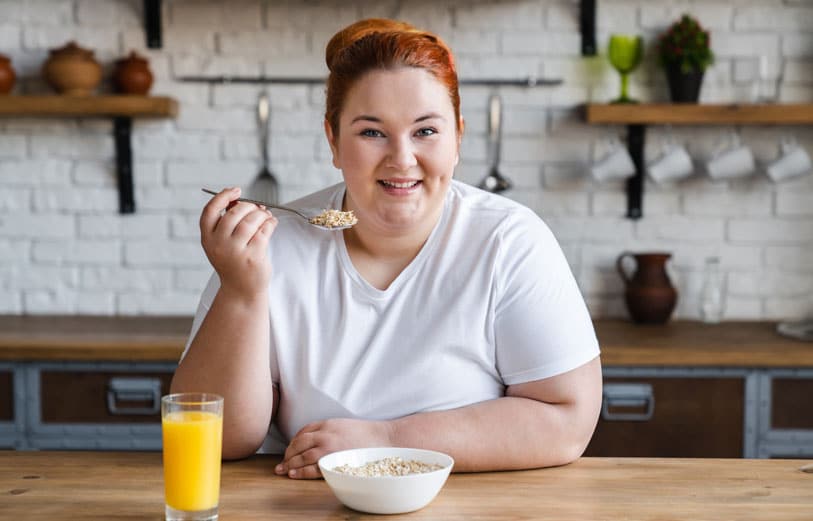Does Losing Weight Affect Breast Cancer Risk?

How can lifestyle choices reduce the risk of breast cancer?
Breast cancer remains one of the most common cancers affecting women worldwide. One of the risk factors gaining attention is weight management. Can losing weight reduce the risk of breast cancer? Let's explore the science behind this connection.
The Link Between Weight and Breast Cancer
There is a well-established link between excess weight, especially after menopause, and an increased risk of breast cancer.
According to the American Cancer Society, women who are overweight or obese have a higher risk of developing breast cancer. Various studies have compared the risk of breast cancer in women with an elevated body mass to those who maintain a healthy weight. In essence, the connection between excess weight and breast cancer in women is because fat tissue produces estrogen. Estrogen is a hormone that can fuel the growth of hormone-receptor-positive breast cancers.
Additionally, obesity is often linked to higher levels of insulin and other hormones that may promote cancer growth. Chronic inflammation is also more common in individuals with excess body fat. Hence, the increased insulin and inflammation produced by the fat tissue may also contribute to the development of certain cancers, including breast cancer.
Can Losing Weight Lower Breast Cancer Risk?
While being overweight increases the risk, studies also suggest that losing weight can lower the risk. Several large-scale studies have suggested that women who lose weight, especially after menopause, may reduce their risk of breast cancer. Even moderate weight loss (about 5-10% of body weight) has been associated with a lower breast cancer risk.
The Women’s Health Initiative (WHI) conducted a study on postmenopausal women, revealing that those who lost weight had a 12% lower risk of developing breast cancer compared to those whose weight remained the same. This evidence points to the fact that weight loss may be a protective factor against breast cancer.
How to Approach Weight Loss Safely
For women looking to reduce their breast cancer risk through weight loss, it's essential to adopt healthy, sustainable practices. Here are a few tips:
- Balanced Diet:
Focus on whole foods, lean proteins, fruits, vegetables, and whole grains. Avoid processed foods high in sugars and unhealthy fats. - Regular Exercise:
Aim for at least 150 minutes of moderate-intensity or 75 minutes of high-intensity physical activity per week. Exercise helps with weight management, lowers inflammation, and improves overall health. - Avoid Crash Diets:
Rapid weight loss through extreme dieting can lead to muscle loss and nutritional deficiencies. Crash diets can negatively impact your health. Again, focus on starting small healthy eating habits that can be sustained long-term. - Consult Healthcare Providers:
If you're concerned about your weight and cancer risk, speak with your healthcare provider or a nutritionist. These professionals can provide personalized advice and help you create a tailored weight loss plan.
Other Factors to Consider
While losing weight can reduce the risk of breast cancer, it's not the only factor. Regular screenings, maintaining a healthy diet, limiting alcohol, and avoiding smoking are other critical components of a cancer prevention strategy.
Those with a family history of breast cancer should seek the assistance of a qualified medical professional. Further evaluation, including genetic counseling, self-breast exams, and routine mammograms, may be recommended to assess individual risk factors.
Lowering Breast Cancer Risk: A Lifestyle Approach
While losing weight can reduce the risk of breast cancer, it is only one part of a variety of factors that can improve a woman’s overall health and well-being.
All women are encouraged to take the following proactive steps to lower their risk of breast cancer:
- Eat a balanced and nutritious diet.
- Engage in regular exercise.
- Limit alcohol intake.
- Avoid smoking.
- Seek regular medical care.
- Complete recommended screenings.
By staying informed and making mindful choices, women can take control of their health. Doing so can reduce their risk of breast cancer and increase their opportunity to live longer and enjoy healthier days.

